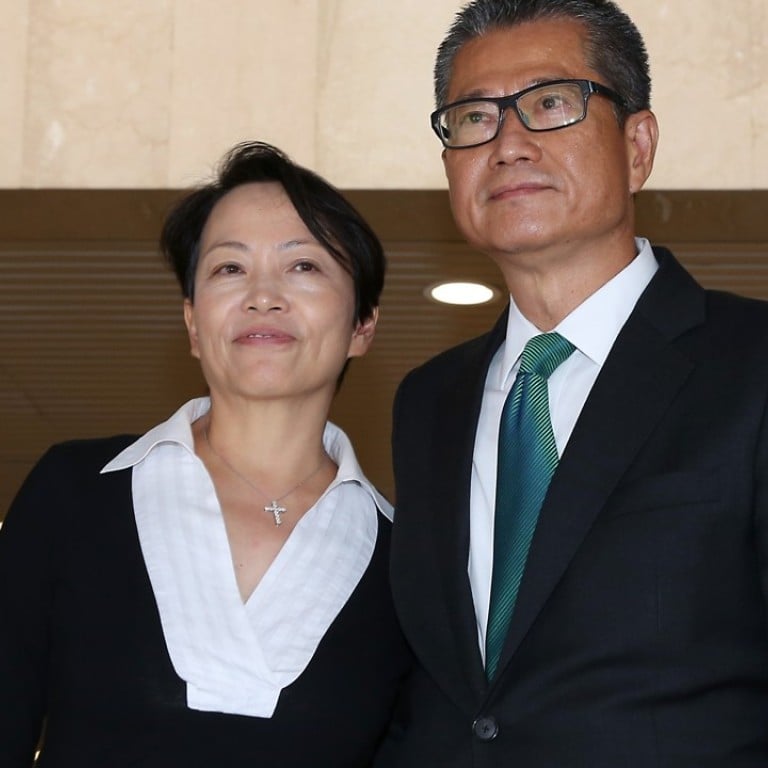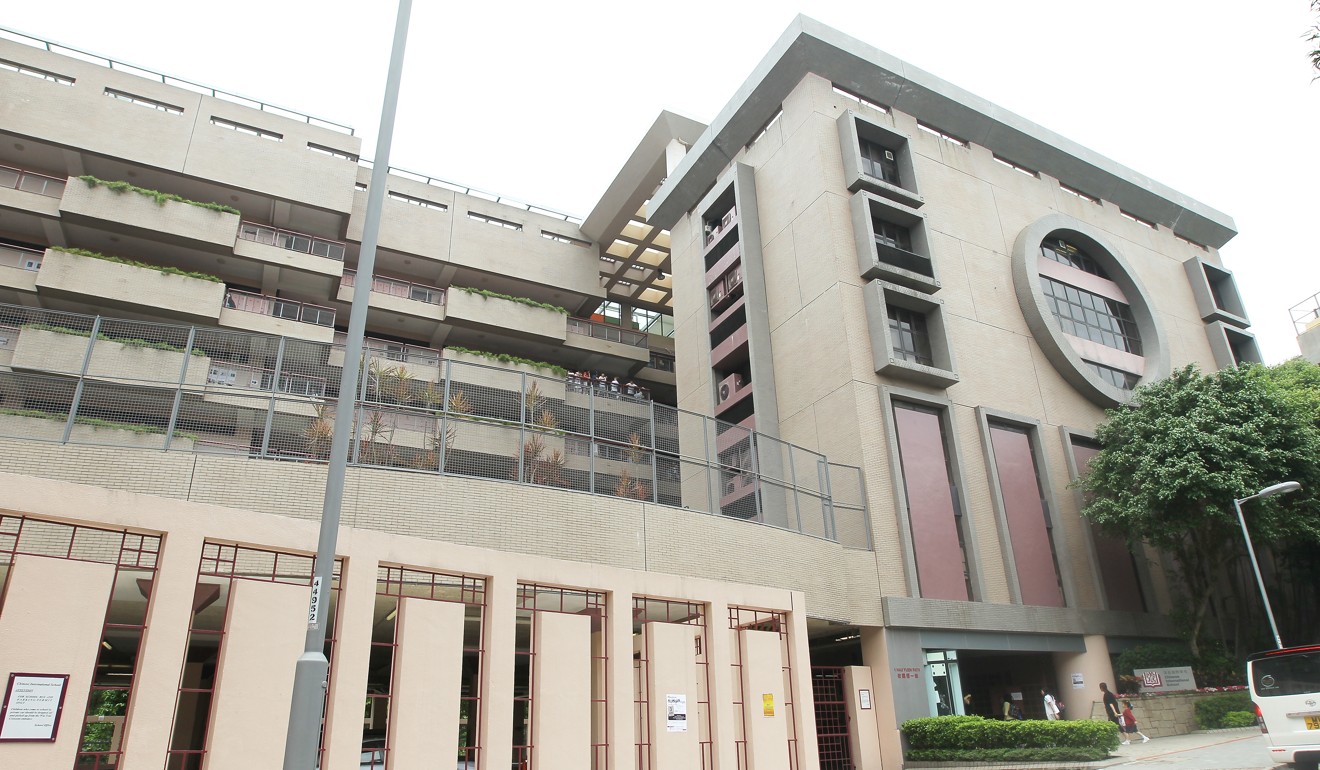
Financial Secretary Paul Chan and wife vow to continue defamation fight after Hong Kong top court orders retrial
The couple were ordered to pay HK$230,000 in damages three years ago but won appeal in 2016
The Court of Final Appeal allowed an appeal lodged by Chinese International School board member Carl Lu and his children Jonathan and Caitlin, challenging the lower appeal court’s decision to set aside a jury’s verdict in the couple’s favour.
But it was not all bad news for Chan and his wife Frieda Hui Po-ming as they won part of the legal costs for their successful challenge at the Court of Appeal in December 2016.
Hong Kong finance chief Paul Chan faces yet another court case over defaming children
Neither party showed up in court on Tuesday for the judgment.
On Tuesday evening, the Chans also issued a statement: “We will continue to defend ourselves to the best we can in the hopes that justice will be served.”
The legal tussle was sparked by five emails and a document published in December 2011 by Chan and his wife, over rumours that twins Jonathan and Caitlin had got away with cheating in an economics essay test because their father was a school board member.
The Chans heard the rumours from their daughter Joyce, who was in the same class. They demanded the school take action. The school’s management investigated the rumours and the Lus were exonerated three times.

The Lus sued the Chans for defamation in 2012 and the case was fought, back and forth, all the way to the Court of Final Appeal, which finally ordered a retrial on Tuesday.
In the statement on Tuesday evening, the Chans also revealed how the case had brought them considerable stress over the years and they addressed rumours claiming they had emailed Harvard University to thwart Jonathan Lu’s application to the top American university.
“What has pained us most were false rumours of us sending an anonymous email to Harvard University to accuse Jonathan Lu, causing his application to fail. We solemnly declare that we had never sent any emails to Harvard University. We are completely unaware of how Harvard University had assessed his admission application.”
The couple also thanked teachers and students of the school who testified for and supported them.
When the case was first fought, a High Court jury found in October 2015 all the six materials in question published by the Chans were defamatory and four were “published with malice” and ordered damages of HK$230,000 (US$29,300) to be paid by the Chans to the Lus.
Don’t ignore decision to clear Hong Kong finance chief Paul Chan and wife of defamation, court told
The ruling meant the Chans’ actions were not protected by qualified privilege, which could be argued as a defence if someone acted out of an interest or a duty, as the Chans claimed they had.
But the Court of Appeal spared Chan and Hui from paying the compensation after it found the trial judge had seriously misdirected the jury.
That finding was backed by the top court as Lord Robert Reed concluded in a 28-page judgment: “These defects in the directions are substantial … the Court of Appeal was right to decide that the verdicts must be set aside.”
At issue was the proper legal approach on malice to defeat a qualified privilege defence.
Reed said the defence would not stand if the plaintiff proved the publisher’s main reason for making the communication was other than the purpose for which the occasion was privileged.
To determine whether a communication was published maliciously, Reed said the judge would first have to decide if the occasion was privileged and if so, for what purpose, before a jury was tasked to decide whether that was the defendant’s reason for publishing.
But in the present case, the trial judge had directed the jury to assume the offending words were published on occasions of qualified privilege – without clear explanations as to why they were privileged – and reached his own conclusions only after the jury returned verdicts on malice.
The next question was whether there was any evidence on which a properly directed jury could find malice on the part of the defendants.
The Court of Appeal had decided that there was not, so a retrial was not necessary. But the top court noted that the lower appeal court had based its decision on a wrong understanding of malice.
Reed concluded: “The court should have ordered a retrial.”

